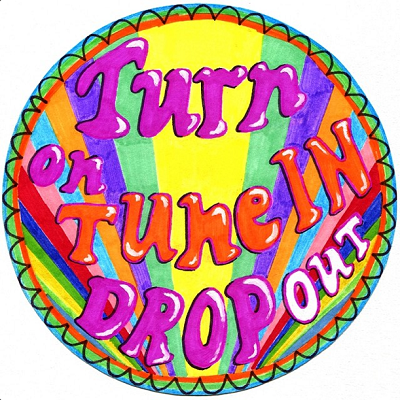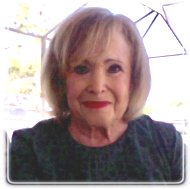 If you were an adult living in the early 60’s, you would have known immediately what was being referred to in this quote. These were the words of Timothy Leary, Ph.D. (Berkley). Dr. Leary was the go-to guru of the psychedelic experience.
If you were an adult living in the early 60’s, you would have known immediately what was being referred to in this quote. These were the words of Timothy Leary, Ph.D. (Berkley). Dr. Leary was the go-to guru of the psychedelic experience.
Leary had solid and impressive academic credentials. He was part of the Psilocybin Project at Harvard University. This project was designed to investigate the usefulness of psychedelics, especially LSD, in psychiatric and other mental health settings.
Leary and his colleague, Richard Alpert, Ph.D. (Stanford) who adopted the name Ram Dass partnered in this enterprise. Both were fired by Harvard in 1963 as associates became alarmed by their methods of research. Subjects for their experiments were often chosen randomly and without clear design which, potentially, put their health and welfare at risk. It is worth noting that both Leary and Alpert were actively using psychedelics as they conducted their research.
Eventually, certain psychedelics were declared to be illegal. Hallucinogenics became hard to obtain and harder to assess as to composition as users were forced to manufacture their own or to buy their drugs on the black market.
Many stories were circulated concerning the dangers of using psychedelics. One, rumor, which proved to be false, was that a group of students who were “tripping” stared directly at the sun so long that they became blind. By 1965 the FDA had revoked permits that allowed research. As a result, funding dried up as well.
Fast forward to around 2011 when it became known that LSD and magic mushrooms were used extensively in Silicon Valley. High-tech workers were influenced by Steven Jobs. Jobs acknowledged his use of psychedelics in his 20’s. He revealed that he found the experience to be enlightening.
Those who work in Silicon Valley face extreme competition and pressure to create something new in the ever-growing field of high tech. The resulting atmosphere of “dog eat dog” has led to the commonly used practice of microdosing LSD and magic mushrooms.
Proponents of microdosing claim that it increases levels of energy and creativity; enhances the ability to focus; improves interpersonal skills; intensifies spiritual awareness; alleviates anxiety and depression, and is helpful in dealing with the symptoms of ADHD.
A micro dose would measure at 10% of a “normal” dose of these substances. Since these treatments are hard to calculate, there is little confidence in knowing exactly how much an individual ingests in each portion. It has been acknowledged that taking the wrong amount may be a problem.
Albert Hofmann was the Swiss scientist who discovered LSD. He worked as a technician for Sandoz Labs in Bern, Switzerland. He first ingested LSD, accidentally, on April 16, 1943. Upon further experimentation, Hofmann came to believe that LSD was medicine for the soul. He viewed it as a tool to turn us into what we are supposed to be. Hofmann revealed that he took microdoses of LSD for decades. It is believed that he continued this practice until his death at the age of 102.
James Fadiman Ph.D.(Stanford) was mentored by Richard Alpert at Harvard. Fadiman believes that microdoses of LSD increase the levels of serotonin in the brain and that it creates hypermetabolism in the cerebral cortex. He suggests that micro doses may be safely used to replace anti-depressant and anti-anxiety medications. He continues to pursue his study of the effects of psychedelics on the psyche. In 2011, Fadiman published a book entitled The Psychedelic Explorer's Guide: Safe, Therapeutic, and Sacred Journeys, which has become the seminal blueprint for the advantages connected to the psychedelic experience.
Additional promoters of research into the efficacy of psychedelics are David Nutt, Director of NeuroPsychopharmacology at Imperial College, London and David Nichols, professor of pharmacology at Purdue University.
The website Reddit has developed a subreddit (a specialized extension) dedicated to microdosing. This category has over 9,000 individual subscribers.
Myron Stolaroff, an author and researcher, spent years investigating the effects of mescaline and other psychedelics. He promoted the usefulness of microdoses of hallucinogenics because, unlike full doses, they did not take the user into a profoundly altered state.
Stolaroff espoused the theory that the only way to reach real freedom from uncomfortable feelings was to find a way to bear the discomfort of said feelings. Microdosing, he believed, took off the edge of the severity of the pain felt while re-experiencing feelings such as guilt and shame. Stolaroff found that this allowed subjects to tolerate and come to terms with painful self-beliefs.
The use of psychedelics among those who participate in extreme sports is an open secret. Users report a dramatic increase in reflex time, a near-perfect ability to balance, and increased focus. Individuals who surf, rock climb, race motorbikes, hang glide, etc. claim that microdosing allows them to withstand pain and weakness that would, otherwise, hamper their achievements.
Novelist, essayist, and attorney, Ayelat Waldman, whose book and memoir, A Really Good Day was published on 1/10/17 reports that after years of trials of conventional medications for a mood disorder that failed to alleviate her symptoms, a trial of microdosing LSD allowed her to feel normal again for the first time in years.
In 1963 Aldous Huxley, writer, novelist, and philosopher, instructed his wife to inject him with 100mg of LSD intramuscularly. Huxley was dying of cancer and chose to, literally, trip his way out of this life.
Reporting on the effects of microdosing has been, primarily, anecdotal. It remains to be seen if research into the use of hallucinogens will be reinstated as the underground (but not so secret) use of these substances continues.
Aldous Huxley, Dying of Cancer, Left the World Tripping on LSD (1963). (2011, October 5). Retrieved January 11, 2017, from openculture.com
Dean, J. (2017, January 5). Mico-Dosing The Drug Habit Your Boss is Gonna Love. Retrieved January 11, 2017, from gq.com
Everything You Wanted to Know About Microdosing. (2016, January 7). Retrieved January 11, 2017, from thethirdwave.co
Fortini, A. (2017, January 9). The Two Types of People who Microdose LSD. Retrieved January 11, 2017, from esquire.com
Malone, N. (2016, November 17). Why Power Women are Microdosing LSD at Work. Retrieved January 11, 2017, from marieclaire.com
Oroc, J. (n.d.). Psychedelics and Extreme Sports. Retrieved January 11, 2017, from maps.org
Schirp, M. (n.d.). Microdosing: The Revolutionary Way of Using Psychedelics. Retrieved January 11, 2017, from highexistence.com
Solon, O. (2016, August 24). Would You Take LSD to Give You a Boost at Work? Retrieved January 11, 2017, from wired.co.uk
Williams, A. (2017, January 7). How LSD Saved One Woman's Marriage. Retrieved January 11, 2017, from nytimes.om
Yankowicz, W. (2015, October 16). Silicon Valley's Best-Kept Productivity Secret: Psychedelic Drugs. Retrieved January 11, 2017, from inc.com
About the Author

Ruth Gordon
, MA/MSW/LCSWI bring with me +30 years of experience as a clinician. My Masters degrees are from: Assumption College, Worcester, MA, Master of Arts in Psychology & Counseling/ and Boston University School of Social Work, Boston, MA, an MSW in Clinical Social Work. This is the 11th year I have written a monthly newsletter that is sent to approximately 500 individuals. The archive can be found on my website, www.foreverfabulousyou.com.
Office Location:
The OC Building, 11983 Tamiami Trail, N., Naples, FL 34110
Naples, Florida
34110
United States
Phone: 239 293-4314
Contact Ruth Gordon
Professional Website:
www.foreverfabulousyou.com